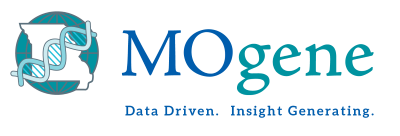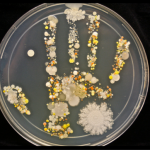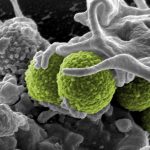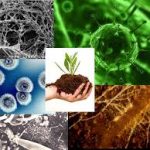Microbiome
Genomic and Molecular ServicesAPPLICATIONS
Human
The host of microorganisms living within and on the human body plays an essential role in health and well-being. Bacterial cells outnumber human cells by a factor of 10 and have a profound effect on our bodies. Interactions between humans and the microbiome influence broad aspects of human biology, including: nutrition, immune function, infections, and diseases such as diabetes, cancer, Alzheimer’s, and obesity.
Infectious Disease
The interactions between microorganisms inside our bodies can have a major impact on the outcome of infections. Metagenomic studies provide an opportunity to better understand these interactions to prevent disease. Additionally, these studies can provide information on antibiotic resistance and virulence factors involved during severe infections.
Plant
Similar to humans and animals, plants host communities of microbes that influence their biological processes. Interactions with microbes above ground and in the rhizosphere play major roles in nutrient uptake, survival during stress, and overall plant health. Recent studies of the plant microbiome have begun to document various types of microorganisms that are present, which includes bacteria, fungi, and microscopic eukaryotes.
SOIL
Advances in NGS technology and metagenomic analyses have greatly expanded our ability to characterize the microbiome within the soil and identify the elements that shape soil microbial communities. Still, most soil microorganisms are still poorly described and not fully understood. New NGS technologies allow researchers to identify how we can manipulate and manage the soil microbiome to increase soil fertility, improve crop production, and broaden our understanding of how native ecosystems will respond to environmental change.
ANIMAL
Animals and livestock are populated with diverse microbial communities that can impact animal health. Microorganisms in livestock influence milk production, meat production, and breeding capabilities. Understanding the microbiomes of animals and livestock around us can help improve agriculture efforts.
Built Environment
Every building, from private homes, offices, and health care facilities, hosts a unique microbiome that is influenced by factors such as outdoor environment and human occupants. In some cases, these microbes can pose a threat to human health. Monitoring microbial compositions of various spaces, plumbing, and HVAC systems can help prevent the spread of dangerous pathogens.
BIOFUEL
In a world impacted by human activity, clean energy from alternative fuel sources is desired. Scientists are increasingly examining microbiome communities searching for alternative sources of energy. Metagenomics studies provide a clearer picture of a broad range of chemical and enzymatic reactions in microbes such as bacteria and fungi. These newly discovered pathways are a promising source of energy in our rapidly growing world.
Novel Organisms
It is well known that most microbes are not currently culturable in a laboratory environment. It is now estimated that more than 90% of bacteria cannot be cultured with traditional techniques. However, metagenomics allows us to probe microorganisms that have yet to be discovered in a variety of different environments. This gives us a unique opportunity to better understand complex microbial communities.
ANALYSIS AND APPROACHES
Types of Analysis
- Phylogenetic and species-level identification for bacteria, fungi, and archaea in the database
- Viral genome classification
Approaches
- Study design
- Sample handling and extraction
- 16S/18S rRNA/ITS primer sequencing
- Metagenomic whole genome shotgun sequencing
- Data analysis and interpretation
Quality and safety
The Quality Commitment From MOgene
Regulatory Services
MOgene has a state-of-the-art, CLIA-certified facility with an established reputation of complying with relevant national and international GxP compliance regulations.
- Audit ready for clients with routine internal quality audits
- GLP compliance per FDA 21 CFR Part 58 and Part 11
- Active CAPA program for process improvement
- CLIA certification
- USDA certification
Quality Managment System
MOgene has a robust Quality Management System (QMS) detailed in a manual that ensures compliance for quality monitoring and improvement.
- Transparent and routine communications on project timelines and deliverables
- Complete documentation of standard operating procedures (SOPs) and 100% QC of data
- Rigorous sample management process
BioSafety
Our Biosafety practices enable us to provide services for early R&D and market release studies for pathogens that require BSL-2+ facilities.
- Higher levels of lab safety for antimicrobial, human, and animal health vaccine development
- Dedicated BSL-2+ lab and pre-amplification room for your clinical studies
- Trained personnel to handle BSL-2+ level agents
- UNIDIRECTIONAL workflow
Security and Data Protection
MOgene considers safety and confidentiality a top priority for our client’s data.
- 24/7/365 temperature and humidity monitoring
- Individually coded key access to labs
- Secured access to data records
- Daily back-up of data
OUR HISTORY SPEAKS FOR ITSELF
Supporting Genomic Studies Since 2004
Industry Leading Experienced Team
More Than 150 Citations in Peer-reviewed Journals











